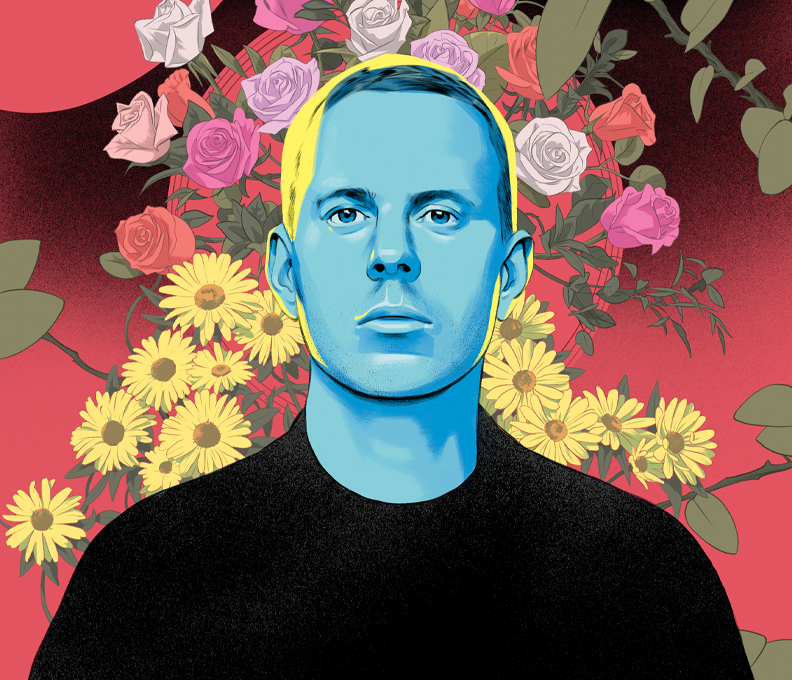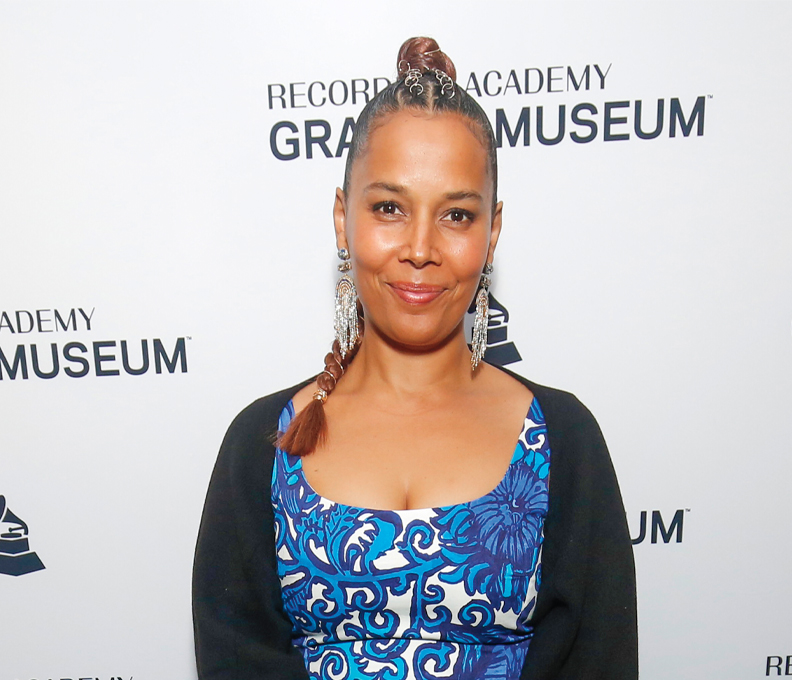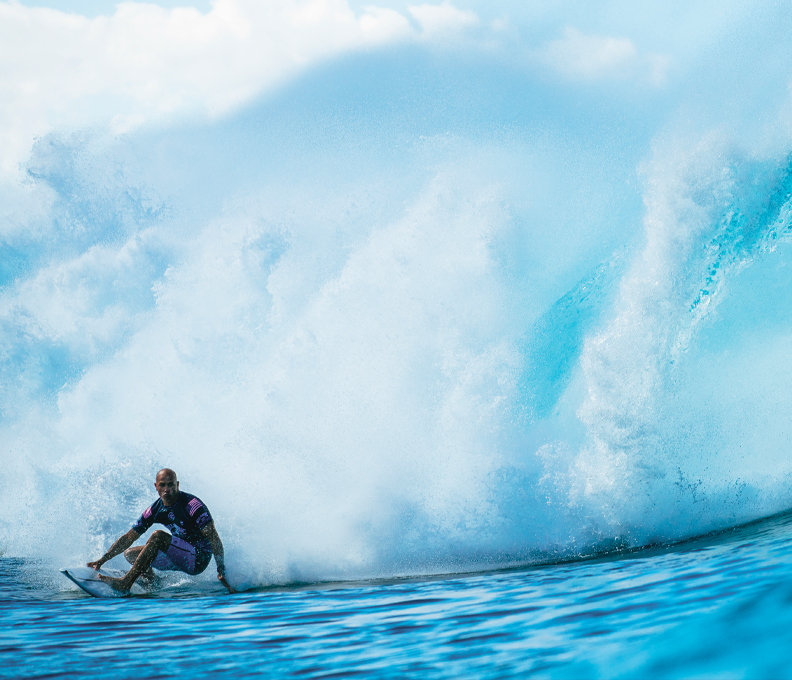Richard Christiansen’s Cult-Favorite Botanical Wellness Brand
Flamingo Estate creates superior lifestyle products from premium ingredients
January 17, 2024

Richard Christiansen / Illustration: Courtesy of Señor Salme
It’s quite possible you’ve never heard the term “radical inconsistency.” However, if you’re lucky enough to be on the receiving end of a box of Flamingo Estate home and garden products, you’ve definitely caught a whiff of it. Richard Christiansen, founder of Flamingo Estate, a brand that champions pleasure and botanical wellness, packs radical inconsistency into every bottle of Roma Heirloom Tomato Dish Soap and Winter Harvest Persimmon Vinegar.
“If you go to a hotel—or find yourself on an airplane—the snack you get in Hawaii is completely different from the one you get in Mexico. The soap feels and smells different in Japan than it does in Australia. If it’s a Flamingo Estate product, it’s always going to be fantastic but it’s never going to be the same,” Christiansen says. “Real luxury is when you excite all of your senses, taste, touch, smell, sight, and really keep them entertained all the time.”
The unpredictability is actually predictable. “The garden is not the same every season. The olive oil tastes different. The sage smells different. All these things are time capsules that are dependent on how much rainfall or how much sunshine you get,” he says.
While Christiansen understands agrarian life well, it was not his first calling. The son of Australian farmers lived a much different existence at the helm of Chandelier Creative, an agency specializing in marketing luxury goods for high-fashion brands such as Hermès, Cartier, Calvin Klein, Madewell, Nike and more.
The global pandemic forced him to reevaluate his life. “Two decades of running a big business left me exhausted and out of alignment. I felt like I had been sleepwalking. I’ve spent my whole life selling people luxury goods and I had this longing to get back to more meaningful things. How do we get more grounded? How do we get more responsible?”
He sought the answers to those questions within the Los Angeles home in which he took solace, a 1940s pink Spanish-style mansion set on seven acres between Eagle Rock and Highland Park. Flamingo Estate would turn into the center of not only Christiansen’s personal universe but also his new career.
“I had been getting ready for this for 20 years before it happened,” he says. In the early days of the shutdown, a farmer asked for assistance. They were struggling to sell fresh produce due to closures.
“She asked if I would help her sell her vegetables,” he says. Christiansen put together farm boxes and sold them through his network. They quickly grew in popularity. “We had farmers coming to us saying, ‘We’re growing all this stuff, what can you make with it?’ ” he recalls.
Expounding on his own personal philosophy that there is “no greater medicine than a hot bath and a good meal,” he took the idea one step further. Christiansen learned to make soap and it changed everything.
“I needed to awaken my senses and so I made an incredible bar of soap—doubled the amount of essential oil, then doubled it again and just made this incredibly fragrant thing,” he says. “Next, I went to the kitchen. I’d worked in fashion for 20 years and never ate anything. I had forgotten how food tasted. And so making food and eating food was such a joy and a pleasure. This started to wake me up from slumber. Embracing pleasure is a courageous act: eating the meal, drinking the drink, smelling the thing. Life is too short not to live with excitement around your senses.”
The house became a laboratory, the kitchen, bathroom. It was where Christiansen cooked, took meetings with farmers and sampled products.
“I tapped into this really interesting supply chain of people who never had someone take what they’re growing and make something different with it,” he says. “We could scale their business and treat their products like luxury goods. No one had done that before.”
The final approval came from English primatologist and anthropologist Jane Goodall, a friend of Christiansen’s. “She said, ‘Why don’t you take all these things that you’ve learned selling people products they don’t really need and do it for good?’ That was the birth of the brand,” he says.
Flamingo Estate has grown to a collection of more than 150 products and works with over 110 regenerative farmers and growers. Christiansen hopes Flamingo Estate products will soon appear in luxury hotels as in-room amenities. “Nobody needs another pack of M&M’s or Pringles,” he says. “Hospitality brands are looking for an opportunity to source locally. If you’re in Mexico, we can make amazing fruit snacks, crisps and chocolates from local farms. We can also do the same thing for soaps and shampoos.” Until then, he continues to sell pleasures such as Will Ferrell honey from Laurel Canyon and Ai Weiwei honey from Portugal, as well as Climbing Tuscan Rosemary Candles and, soon, a new book called The Flamingo Estate Guide to Becoming Alive.
“It’s not complicated. Culturally, we’re so obsessed with the next new thing,” Christiansen says. “I say to people, ‘Please don’t work here if you want innovation. Nothing innovative is going on.’ We are doing the oldest things in the world that people just forgot about. They taste great. They smell great. There’s nothing revolutionary about it. When we put our phones down we just start smelling and tasting the world again. It’s a recipe for a good life.”



